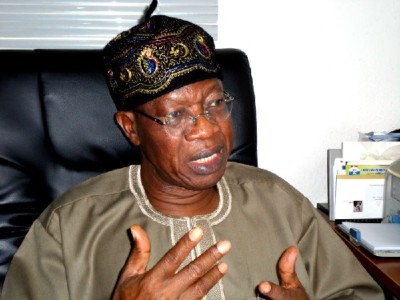 I was invited to a workshop last week to review the level of progress in the compliance of government agencies to the Freedom of Information Act. It was a crucial opportunity for me to bring myself up to speed with some of the happenings within the civil society arena in Nigeria. As part of my preparations for the discussions, I had to read the Freedom of Information Act all over again. It is one legislation that will give you consolation about the amount of resources and sacrifices that were put into it. I recall the exchanges between respected civil society leaders and many politicians during the Obasanjo administration. It is gratifying that after 11 years of intense advocacy, reason triumphed and the bill was passed into an Act by the National Assembly which was later signed into law President Goodluck Jonathan.
I was invited to a workshop last week to review the level of progress in the compliance of government agencies to the Freedom of Information Act. It was a crucial opportunity for me to bring myself up to speed with some of the happenings within the civil society arena in Nigeria. As part of my preparations for the discussions, I had to read the Freedom of Information Act all over again. It is one legislation that will give you consolation about the amount of resources and sacrifices that were put into it. I recall the exchanges between respected civil society leaders and many politicians during the Obasanjo administration. It is gratifying that after 11 years of intense advocacy, reason triumphed and the bill was passed into an Act by the National Assembly which was later signed into law President Goodluck Jonathan.
The passage of the FoI remains a very commendable effort but one wonders why its implementation remains a daunting challenge. So far, only 60 out of hundreds of parastatals and government agencies have been able to set up compliance structures as prescribed by the law. Although some people argue that the FoI Act is too much of an idealistic legislation because of its civil society origin but law is law. Rather than dwell on the idealism argument, I will rather wonder whether the drafters of the law took the Nigerian context into consideration. Some of these laws are uprooted from foreign jurisdictions and foisted on contexts like ours without adapting them accordingly. I will use a few instances to illustrate my argument as one tries to understand the law further and chart a way forward.
The demand for access to public information to be seen as a human right is great but it will take a while. The target for public institutions to respond to the FoI requests within four days is excellent. However, in a situation where many agencies are not connected to the internet or their servers are perpetually down, what do you do? The whole idea of proactive public disclosures sounds very good at least with the amendment of the Official Secrecy Act of 1911. Yet, the culture secrecy prevails in the civil service. It is either as a result of ignorance or wilful negligence. It is either the bureaucrats are deliberately hiding the information or citizens are not yet aware of their rights. Very few government agencies have functional websites that are updated regularly. There are very few designated portals or platforms from where the public can obtain reliable information.
Now, let us talk briefly about the relationship between an FoI regime and the war against corruption. The persistence of corruption despite the application of several remedies means that proper diagnosis might not have been carried out. So before we rush to the discussion of the relationship between (anti)corruption and open society, let us try to find out the underlying causes of corruption in our country. No doubt, the strain of corruption in Nigeria is a peculiar one that inhibits growth. Many countries like us plagued with corruption have managed to continue to grow. A country like Indonesia has a thriving crude oil and palm oil industry amidst high level corruption.
I do not need to over-emphasise the relationship between increased availability of information in the public domain and accountability. However, that relationship is not automatic. Transparent disclosure of information is a necessary but not sufficient condition for accountability. With transparent action, citizens will be expected to demand accountability. Information therefore becomes tools and ammunition for advocacy with which citizens demand an accountability relationship from their leaders. A Freedom of Information regime will therefore only provide us with the information, the rest is in our hands- the citizens. The ability to use the information the right way is another important thing. Often, many people use the liberty of social media to use information wrongly.
For the FoI and anti-corruption reforms to meet, there is a role for anti-corruption institutions. How many of them have so far established functional FoI units within their offices? Does the Economic and Financial Crimes Commission, Independent Corrupt Practices and Other Related Crimes Commission, the Code of Conduct Bureau, Nigerian Extractive Industries Transparency Initiative disclosing information proactively? What is the integrity of the information obtained?
Whose responsibility is it to bring the government agencies up to speed with proactive disclosure and build the capacity of citizens on productive advocacy? Whose responsibility is it to test the FoI law in its current state and find out what works and what does not and why?
PUNCH
END

Be the first to comment